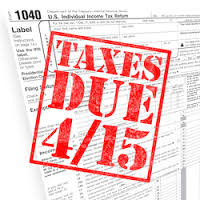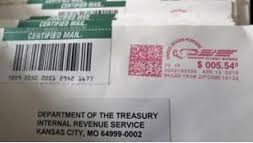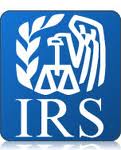Why You Should File Your Taxes by April 15
April 15th is an important filing deadline for individual taxpayers. If the Internal Revenue Service does not receive either a completed tax return or an application for a six-month tax extension by this date, they will automatically assess a failure-to-file penalty. In addition, they will begin to assess a failure-to-pay penalty on any tax amounts owed. Although the failure-to-file penalty can be diverted by applying for a six month tax extension, late payment and interest assessments will automatically begin to accrue as of the April 15th tax deadline regardless of whether a tax extension has been filed.
Because the penalties and interest described above are compounded over time, the financial consequences of failing to file tax returns and failing to pay tax amounts owed can be significant. The failure-to-file penalty is assessed at a rate of 5% of the back tax balance for each month or partial month that a return is not filed up to a maximum of 25% of the outstanding tax liability shown on the return. A minimum penalty of either $100 or the entire amount of the back tax balance is assessed for any return that is not filed within 60 days of the filing deadline. In addition, a failure-to-pay penalty is assessed at a rate of 0.5% per month for each month or partial month following the filing deadline where a back tax balance remains unpaid. This rate is reduced it 0.25% if a taxpayer is making payments according to the terms of an official installment agreement and is excused altogether if a tax extension was filed and 90% of the back tax balance was paid on or before the original filing deadline. The failure-to-pay penalty is assessed for a maximum or 50 months, thus capping out at maximum of 25% of the original tax liability.
The lesson to be learned from all of this is that the filing of tax returns and the paying tax bills should be taken seriously. As is pointed out above, the financial consequences of not doing so can be significant. The failure-to-file penalty can be avoided by simply filing a tax return by the filing deadline even in the case where funds are not available to pay the tax amounts due. Outside of this, a taxpayer should avoid the compounding of penalties and interest by being proactive in coming up with a plan to pay any outstanding tax liability. To this end, the IRS is willing to work with delinquent taxpayers to come up with payment plans they can afford. Once a payment amount is determined based on the size of the back tax balance and the taxpayer’s financial situation, the taxpayer simply pays this monthly installment amount until the back tax balance is paid off. This is a far better solution than ignoring a tax bill and then having to pay the back taxes plus an additional 25% of the original tax amount owed.
If you have tax questions or a tax debt you are unable to pay, our tax settlement professionals are happy to discuss your tax resolution options free of charge. For more information about our services, visit us today at www.professionaltaxresolution.com or call us at 877.889.6527. With over 16 years in the business of resolving tax debt, we have a thorough understanding of tax law together with the experience to know which settlement option will be the best fit for your specific set of circumstances.



